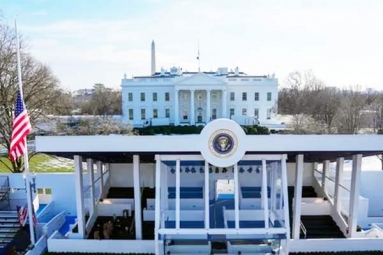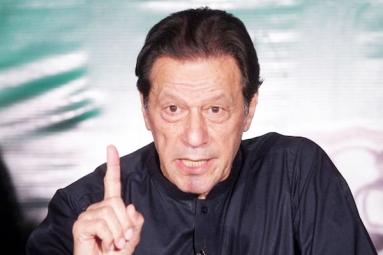U.S. Lawmakers Introduce Legislation to Strengthen India-U.S Strategic Partnership
April 12, 2019 10:45
(Image source from: Zee Business)
The important legislation has been introduced in the House of Representatives by a bipartisan group of half a dozen influential American lawmakers which seeks to advance the United States-India strategic relationship.
If enacted, the legislation would ensure that the U.S. State Department treat India as a NATO ally for the purposes of the Arms Export Control Act.
It would send a powerful signal that defense sales to India should be prioritized according to U.S.-India Strategic Partnership Forum, which had worked on this important legislation.
The bill H R 2123 was introduced this week by Congressman Joe Wilson, a senior member of the House Foreign Affairs Committee.
"India is the world's largest democracy, a pillar of stability in the region, and has shown strong commitments to export control policies," said Wilson.
"This adjustment to U.S. law will further allow the U.S.-India partnership to flourish in line with our security commitment to the Indo-Pacific region. I am grateful for the U.S.-India Strategic Partnership Forum (USISPF), led by Dr. Mukesh Aghi, and their support for this legislation," he said.
The original co-sponsors of the legislation are Congressman Ami Bera, the longest-serving Indian American in Congress and the House India Caucus Co-Chairs, Congressmen George Holding, Brad Sherman, and Congresswoman Tulsi Gabbard and Congressman Ted Yoho.
The National Defense Authorization Act (NDAA) for fiscal 2017 included special language recognizing the unique U.S.-India defense relationship that designated India as a "Major Defence Partner" of the United States.
The language seeks unique consideration for trade and technology sharing with India and increased attention and support to advance this relationship in the areas of defense trade and technology sharing.
"The legislation bolsters national security and helps ensure full alignment between the Department of Defense and the Department of State.
"Such a change will institutionalize the gains made in the relationship and provide a more stable foundation upon which both countries can solidify this unique defence partnership," USISPF said.
Although powerful in its own right, the NDAA FY 2017 has no legal bearing on the State Department's body of legislation, nor does it compel the State Department to view defense with India more favorably, USISPF said in a statement.
To fulfill the spirit and intent of the NDAA 2017, the U.S.-India Enhanced Cooperation Act would amend the Arms Export Control Act to put India on par with NATO allies and Israel, South Korea, New Zealand, Australia, and Japan.
"We applaud Congressman Wilson's leadership in reintroducing this important bill. We are confident the U.S. Congress will continue to enact legislation that bolsters the bilateral. The great power competition is not lost on Members of Congress, who understand the strategic imperative for a deeper relationship with India," said Aghi, president and chief executive officer of USISPF.
"This legislation would be a major breakthrough for the U.S.-India defense relationship. As Chairman of USISPF, I support this move because it would ultimately further strengthen the strategic partnership between the two countries. The future is bright for the U.S.-India relationship and we hope this legislation is enacted soon," USISPF chairman John Chambers said.
-Sangam Sowmya
















